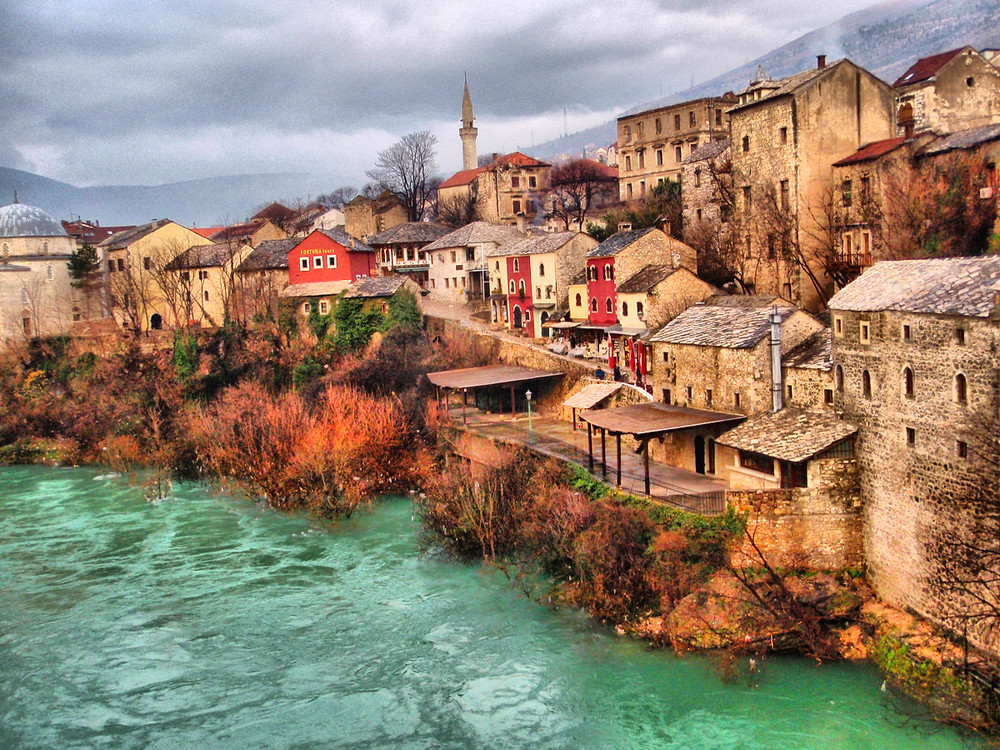
January 23, 2014, by Guest blog
Falling in love with each and every custom
Post written by Rebecca Wright.
Though still in Europe, the Balkans can feel a long way from home. Cultural differences can appear minute at first glance, but after spending more than a few days in the region, the differences can be striking. Generally people’s attitudes towards their lifestyle and their country can be dramatically different from in England. However, it is not as simple as just comparing the difference between England and the Balkans. Each country in the region has different customs and a different culture, so conquering challenges in one Serbo-Croat speaking country does not set you up for life generally in the Balkans. Having spent just over four months in Belgrade, Serbia, I had sufficient time to travel the region of former Yugoslavia, and I am now living in Bosnia.
The first cultural difference I should point out, and a difference anyone from the West would instantly notice after spending a period of time in South-Eastern Europe, is that, wherever in the region you go, the people have a very relaxed nature – and not just a calm nature, or laziness, like we might find in England, but genuinely, a very relaxed nature. Nothing seems to concern the people here too much. For example, after being in Belgrade for a few weeks, I decided to take a trip to Budapest. After calling a minibus company who offer transport to Budapest, we agreed a date I would go. The day before I travelled I had still not heard a time from the company for when they would pick me up. So after three more phone calls I was told “Možda petak sati”, about nine o’clock, but they also added, it depends when the driver set off. After waiting out in the cold for two hours, the driver arrived and stated that the company had said the time depends when the driver sets off. He laughed and guessed I must be English or German, as everyone knows he wouldn’t have gone without me, and that I should have stayed in doors and waited for a knock. I felt a little foolish, and at the time I could not believe the lack of organisation on the company’s part. Now I see this just as an example of the relexed nature of the people here.
Having now moved to Sanski Most, Bosnia, I am faced with a whole new array of cultural challenges. I flew from Belgrade to Banja Luka, the capital of Repulika Srpska, (the Serbian majority region in Bosnia), and caught a bus to Sanski Most, which is about two hours away. Leaving Banja Luka, everything seemed pretty similar to Serbia: Lots of Orthodox churches, a combination of old Austrian-style buildings blended with communist tower blocks. After a short while, however, the landscape changed. I had left Republika Srpska, and was entering the Bosnian-Croatian region of the Federation of Bosnia and Herzegovina. Sanski Most was on the former frontlines of the Bosnian war, and suffered dramatically from “ethnic cleansing”. These days, the population of Sanski Most consists of over 90% Muslim Bosnians. Therefore, the Orthodox churches of Banja Luka were replaced by the minarets of mosques. Though I had experienced Muslim culture before during travels in Africa, Asia and the Middle East, I had never lived in a predominantly Muslim area, so the calls to prayer waking me up in the morning has taken some getting used to. Though the people of the region mostly live with the attitudes of very tolerant and liberal Islam, it is still a different culture from the West. People in Serbia drink. All day. Every day. The people here in Sanski Most are rarely seen drinking and when, in one of the few local bars, I asked for Rakija, (A famous homemade spirit found pretty much everywhere in former-Yugoslavia), I was told the bar did not sell it. Also, the dress sense is far more conservative than on the streets of Belgrade, where woman wear high heels and bright red lipstick to the supermarket.
All in all, there are many cultural differences from England in the countries of former Yugoslavia, and these may have at first caused challenges. However, after a prolonged period of time in the region I have fallen in love with each and every custom the region has to offer, and overcome all challenges I have been faced with.
No comments yet, fill out a comment to be the first

 English
English
Leave a Reply